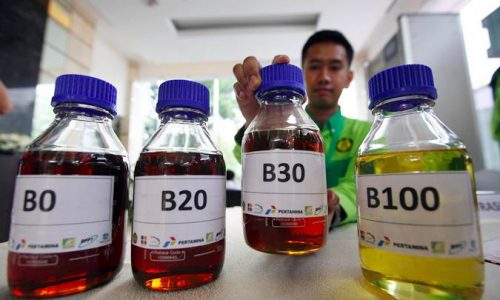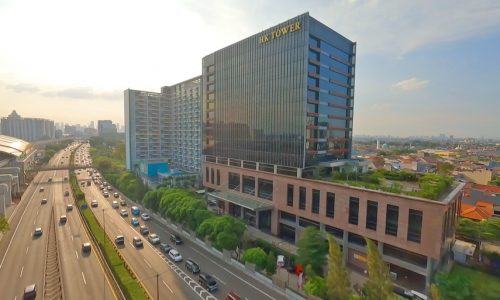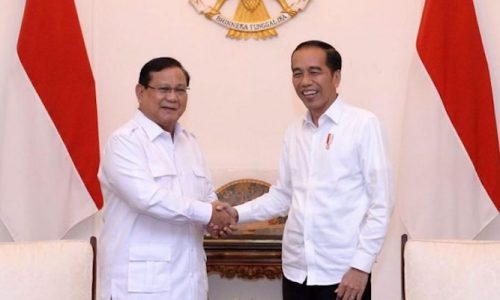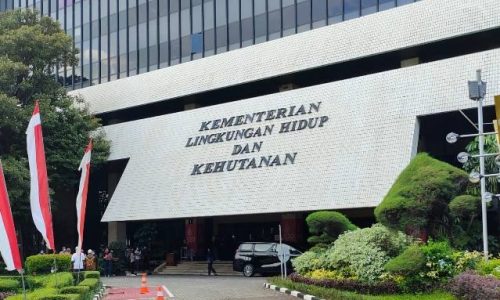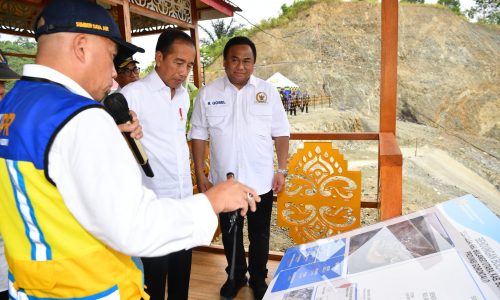A number of civil society organizations in the European Union have released a new report revealing the links between financial institutions and environmental damage.
The report analyses data compiled by research institute Profundo, which shows evidence that since the signing of the Paris Agreement in late 2015, approximately US$1,257 trillion (€1,156 trillion) of global credit has flowed to corporate groups in sector with ecosystem and climate risk.
Titled “EU bankrolling ecosystem destruction”, the report released by Greenpeace International, Friends of the Earth Netherlands and a number of civil society organizations in the EU highlights the flow of funding from financial institutions in the EU. According to the research, one-fifth of global credit, or around €256 billion (equivalent to Rp4,394 trillion), comes from financial institutions in the 27 EU member states.
The funding flowed to 135 companies or major players in environmentally risky sectors, such as soya, livestock, palm oil, rubber, timber, and other commodities with high potential to damage ecosystems. Major companies from various countries, such as JBS (Brazil), Cargill (United States), and two large Indonesian business groups, Royal Golden Eagle and Sinarmas, are also named in this report as recipients of funds from EU financial institutions.
With these findings, civil society organisations specifically highlight the EU’s climate commitments. On the one hand the EU has an anti-deforestation policy, but on the other hand financial institutions originating and based in its member states are still lending and investing to companies that are potentially damaging the environment. Financial institutions in Indonesia also need to reflect on this report, given that the sustainable finance policy being orchestrated by the Financial Services Authority (OJK) is still far from ideal.
“The European Union and Indonesia need to more strictly regulate financial institutions in their respective countries so that they are more responsible and do not participate in financing environmental destruction. This has actually been noted by us and Milieudefensie (Friends of the Earth Netherlands) during the discussion of the draft EU Deforestation Free Commodities Law or EUDR in the past. It is important for the EU to prove their climate protection commitment,” said Uli Arta Siagian, Forest and Plantation Campaign Manager of Wahana Lingkungan Hidup Indonesia (Walhi) in a statement on March 26,2024.
The EUDR, which was adopted in May 2023, is cited as a step by the EU to achieve their global climate and biodiversity commitments. The policy aims to reduce the environmental impact of EU consumption, by requiring corporations to guarantee that their products do not come from deforestation − after December 2020.
However, it does not yet regulate the funding that flows to environmental destruction. Therefore, environmental and human rights organizations are urging the EU Commission to improve the policy by proposing legislation before June 2025. Another important point that needs to be improved from the EU’s anti-deforestation policy is the protection of the rights of indigenous peoples and independent farmers. The EU must ensure their traceability process is accessible and equitable for independent smallholders. As for indigenous peoples, the current EUDR policy does not firmly pressurise producing countries to respect the rights of indigenous peoples.
In Indonesia, palm oil industry practices in the past have been proven to grab indigenous peoples’ land and destroy forests. Similar practices are still likely to continue, especially if you look at the Indonesian government’s very defensive response to EUDR.
“The findings of this report should be of particular concern to the EUDR task force, which consists of members from Indonesia, Malaysia and the European Union, to ensure that these investment flows are only channelled to develop smallholders and deforestation-free supply chains. In the midst of increasingly massive climate disasters, EU banks should no longer fund companies involved in environmental destruction,” Arie Rompas, Greenpeace Indonesia Forest Campaigner, said.
“The Indonesian government must also strengthen its climate commitment by ensuring that there is no more deforestation, because this is a huge contribution to exacerbating the climate crisis,” he added.



